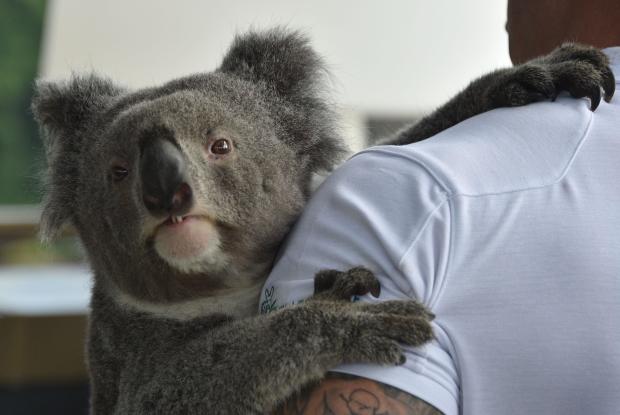Koalas may be "functionally extinct" in Australia, group warns
Koalas, a beloved icon of Australia, may be "functionally extinct" in their native land, a conservation group warns. Koalas have not fully disappeared, but the Australian Koala Foundation (AKF) estimates there are no more than 80,000 koalas left in the country — which may not be a big enough population to ensure their long-term survival.
The remaining koalas represent "approximately 1% of the 8 million koalas that were shot for fur and sent to London between 1890 and 1927," AKF Chairman Deborah Tabart said in a press release.
AKF has monitored the 128 federal electorates of Australia since 2010 and found that 41 of them have no koalas. In dozens of other districts, there are believed to be only small numbers koalas left.
The term "functionally extinct" could describe a species that "has declined to a point where it can no longer play the role it once did in an ecosystem," a report in NewScientist explains, and not everyone agrees with the AKF assessment.
Biologist Christine Adams-Hosking of the University of Queensland, in Australia, told NewScientist that koalas are not in danger of total extinction throughout Australia, but she adds, "at the rate of habitat clearing that is going on, we are going to see increased local population extinctions."
Estimates differ of just how many koalas remain in the wild, but experts agree koala populations are falling due to habitat loss and global warming.
For example, koala populations parts of Queensland and New South Wales, Australia, have declined by as much as 80%, due to climate extremes like severe droughts and heat waves, Adams-Hosking writes for The Conversation. Other threats to the species include disease and deforestation.
"Just 230 years ago, many millions of koalas roamed the great forests and bushland of eastern Australia," WWF Australia writes in its 2019 Koala Conservation Plan. "It is likely that koalas have already disappeared from large areas of their former range in western NSW and Queensland, suggesting habitat conditions in these areas are now inadequate to support koala populations. The pace of such local extinctions is growing, with climate change hastening declines."
Once a local population falls so low that they cannot reproduce or inbreeding becomes common, extinction could follow, Adams-Hosking notes.
In the AKF press release, Tabart urges lawmakers to pass the Koala Protection Act. The legislation is based on the Bald Eagle Act in the U.S., which the AKF said "was successful because there was political motive to ensure their icon did not go extinct."
"Our tourist icon is ready to leave and no, zoos are not the answer. Saving their habitat is," AKF said.




